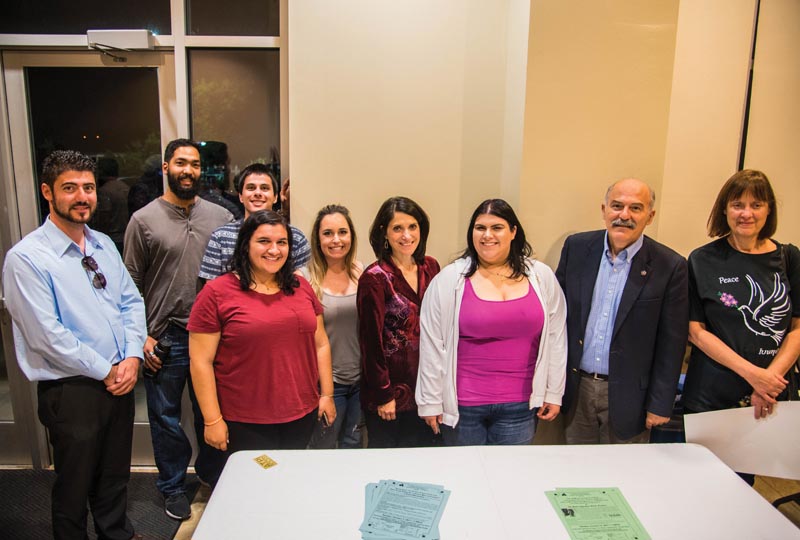
Annie Rubio
Staff Writer
“Our revenge will be to survive.” These words, spoken in the movie The Promise, gave new life to the remembrance of the Armenian Genocide. The Promise premiered this spring, with impressive star power and a touching love story. Despite the fact that the main run of the film is over, it still remains a powerful tool for raising awareness of the Genocide.
Fresno State’s CineCulture class partnered with the Armenian Studies Program to screen the film on Friday, September 29, during their fall lineup. A standing-room only audience of more than 300 was in attendance. Associate producer Carla Garapedian was present from Los Angeles to answer questions about the film and to relate some of the difficulties encountered during production.
Garapedian was very transparent about the future of The Promise, and how the producer’s vision influenced the production. “It was very important that the film have a long educational life.” With this in mind, the producers made the intentional decision of tailoring the film to earn a PG rating, so that it could ultimately be shown in schools.
However, this did conflict with the imagery that would usually be incorporated in a film about the Genocide. “We were making a movie that tells of horrible events,” Garapedian said, “but we couldn’t show the horror. We had to hint at [it].” Both she and director Terry George have past experience with making graphic documentaries. George’s film Hotel Rwanda received an R rating, and could not be shown in schools. Garapedian’s film Screamers also encountered the same problem.
The Promise’s focus on the Armenian Genocide created a tense atmosphere before production even began. “Studios wouldn’t even accept a meeting about this film because of the topic,” explained Garapedian, “even though it was completely financed.” The $90 million production was generously financed by the late philanthropist Kirk Kerkorian, ensuring that there was no financial risk for the production. The Turkish government put pressure on critics, actors, and even other governments to prevent the film from receiving support.
Garapedian and the team wanted as many Turkish actors as possible to have roles in the film, but many of those actors feared the backlash from their own country. Despite these challenges, the film premiered on April 21, 2017. The box office results may not seem successful from a Hollywood perspective, but in terms of awareness and education, the film is a success.
During the discussion following the screening, it was clear that many in the audience were interested in the history of the Armenian Genocide. Questions ranged from what were the motives of those who perpetrated the Genocide to why the Turkish government continues its denial to this day. Garapedian delved into the history of the Genocide and explained her role as the “history wrangler” of The Promise. Her primary responsibility was to ensure that the film be as historically accurate as possible. The room lit up with inquisitive minds wanting to know more about the context of the film and the historical side of the story.
After several questions, the topic of Turkish denial was brought up. A member of the audience stood up, and identified himself and several others present as Turks. “The Turkish government may deny involvement in the Genocide, but we recognize it. We apologize for what our ancestors did to your people.” He went on to specifically identify himself as a Turkish Christian, who was working with a reconciliation movement called the Armenian Turkish Peace Initiative. After he concluded, the emotionally charged audience broke out into applause.
For many Armenians, this was something they never thought possible—an apology from a Turk. This event gives many hope that reconciliation between Armenians and Turks is a possibility in the near future. The energy of this movement ensures that The Promise will continue to have an impact in the world.
As Garapedian concluded, “as long as there continues to be denial, movies such as The Promise will have an important purpose.”
 Hye Sharzhoom Armenian Action
Hye Sharzhoom Armenian Action